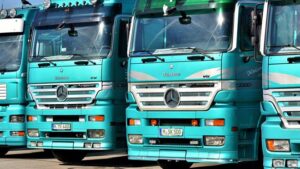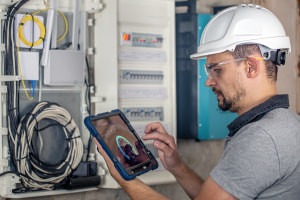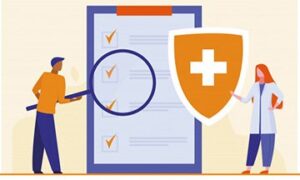Oil and Gas Maintenance Engineer Training Course
Course Fee:
This course intends to help the participants to be able to:
• Gain the knowledge and skills necessary to perform maintenance activities safely and effectively in the oil and gas industry
• Understand how to properly document maintenance activities
• Identity and correct equipment problems in a timely manner
• Commit to safety and environmental protection
• Learn how to troubleshoot, repair, and perform preventive maintenance
• Learn the latest advances in oil and gas production and processing technologies
• Develop a better understanding of the role of the oil and gas maintenance engineering profession
• Learn how to perform maintenance activities
• Understand the importance of maintenance
• Understand the principles of maintenance planning and scheduling
Basic Tools and Safety
• Motor control
• Turbines safety
• Rigging
• Basic Electricity
• Welding safely
• Safety in the workplace
• Pumps and compressors
• Pipefittings and safety issues
Environmental Regulations and Compliance
• Outline best practices for environmental compliance
• Impact of environmental regulations on maintenance engineering
• The role of a certified oil and gas maintenance engineer in the environmental compliance
• Waste regulations
• Common environmental concerns in the oil and gas industry
• Compliance requirements for environmental regulations
Maintenance Planning and Scheduling
• The benefits of effective maintenance planning and scheduling
• Steps involved in creating a maintenance schedule
• Using the master schedule
• Role of technology in effective maintenance planning and scheduling
• Determining the purpose of each activity in the system
• The key components of a successful maintenance plan
• Challenges of maintenance planning and scheduling
• Factors to consider when planning and scheduling maintenance
• The future of maintenance planning and scheduling
• Identifying and using each report for planning
• Importance of maintenance planning and scheduling
Preventative Maintenance
• Importance of preventive maintenance
• The challenges
• Best practices to follow
• Developing a preventive maintenance plan
• Implementing the preventive plan
• Troubleshooting preventive maintenance issues
Maintenance Records and Documentation
• Maintenance logs and documentation
• Maintenance system records
• Work order systems
• Equipment manuals and documentation
• Preventive maintenance records
• Computerized maintenance management systems (CMMS)
• Maintenance reporting
Equipment Life Cycle Management
• Equipment design and selection
• Reliability-centered maintenance
• Predictive maintenance
• Operations and maintenance planning
Maintenance of Pumps, Compressors, and Other Rotating Equipment
• Vibration analysis and balancing of rotating equipment
• Selection and procurement of pumps, rotating equipment, and compressors
• Troubleshooting and repairs
• Operation and maintenance
• Lubrication
• Maintenance procedures
Tank and Vessel Maintenance
• LNG maintenance
• Offshore and onshore vessel maintenance
• Oil and gas tank maintenance
• Inspection methods
• Floating production storage and offloading (FPSO) vessel maintenance
• Common problems and repair methods
Maintenance of Pressure and Safety Relief Valves
• Standard operating procedures for maintaining pressure and safety relief valves
• Common issues with pressure and safety relief valves
• Troubleshooting techniques and methods
• Best practices
• Repairing pressure and safety valves
• General inspection and maintenance requirements
Mechanical, Electrical, and Piping Systems Maintenance
• HVAC systems maintenance
• Handling compressed air
• Pipeline systems
• Process vessels and reactors
• Hydraulic systems
• Filtration maintenance
• Pneumatic systems repairs
• Industrial refrigeration systems
Maintenance of Pumps
• How to safely store and handle pump repair parts
• How to properly document pump maintenance
• The importance of regular pump maintenance
• Best practices to maintain different types of pumps
• Developing maintenance schedule for pumps
• Types of pumps
• Common pump repairs
• Troubleshooting pump issues
• Replacing pump seals
• Pump operation and maintenance
Methodology
The training methodology integrates lectures, interactive discussions, collaborative group exercises, and illustrative examples. Participants will acquire a blend of theoretical insights and hands-on practical experience, emphasizing the application of learned techniques. This approach ensures that attendees return to their professional environments equipped with both the competence and self-assurance to effectively implement the acquired skills in their responsibilities.
DATE:
1ST BATCH: 9th – 12th Jan, 2024
2ND BATCH: 30th July- 2nd Aug, 2024
Course Category
- Human Resource and Admin
- Finance and Accounting
- Internal Audit and Fraud Control
- Stores, Procurement and Supply Chain
- Information Technology
- Aviation and Maritime
- Banking, Investment and Insurance
- Business Communication
- Construction Management & Civil Engineering
- Engineering, Instrumentation and Maintenance
- Entrepreneurship and Business
- Hotel & Hospitality Management
- Law and Contract Management
- Management and Leadership
- Project Management
- Public Relations
- Public Sector
- Sales, Marketing & Customer Service
- Secretaries & Personal Assistants
- Transport & Logistics
- Security and Safety
More Courses
VENUE
25, Queen street, Alagomeji Bus Stop, Yaba, Lagos










